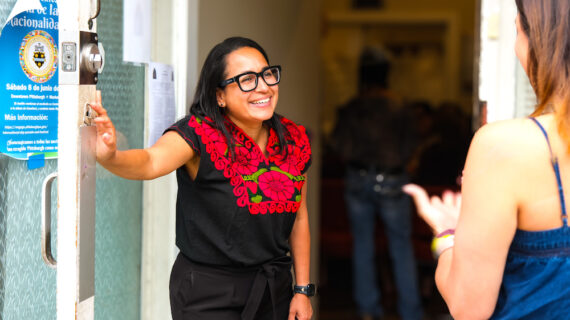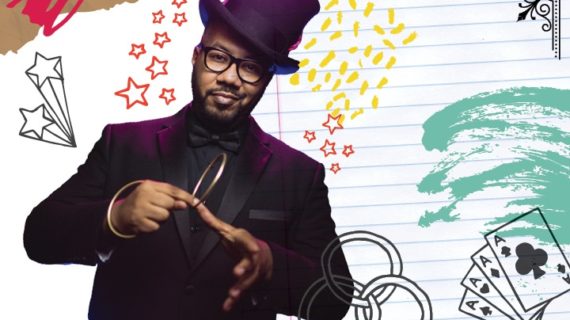
You can help fix gender inequality in STEM — and help your own kids in the process
When Pittsburgh students think about their future careers, every one of us will likely need some computer science experience. Computer science isn’t just for people working in tech. Jobs in everything from medicine to marketing require computer knowledge, and AI platforms like Chat-GPT are likely to become central to people’s lives.
Pittsburgh high schools are ready for this. Many schools offer computer classes, including the College Board’s Advanced Placement (AP) computer science courses.
But there’s one big problem: Women and girls are being left behind. Despite an uptick in college computer science courses, only 20% of computer science majors in universities are women.
WHAT LOCAL GIRLS ARE EXPERIENCING
I took AP Computer Science (CS, for short) at my school this past year. It’s a college-level class and I loved it. But out of 16 students, I’m one of only three girls who sit among 13 boys. I’ve never felt discouraged or unsupported by my teacher or the boys in my class. But it’s intimidating — unlike in my other STEM classes, like biology and calculus, where there’s an equal split between the genders.
Throughout computer science in schools and the working world, there’s a serious lack of female representation. This makes me feel like I shouldn’t be interested in CS — if other girls aren’t enrolling in this class, why should I sign up? No one discusses this faulty reasoning and negative self-talk in class, but it’s a powerful thing.
Consider: When my class learned a bit about the history of computer science, we learned that Charles Babbage, or the “Father of Computer Science,” was the genius and technological pioneer behind the Analytical Machine. It wasn’t until I did my own research that I discovered that the machine was the brainchild of Ada Lovelace, the woman who is widely regarded as the world’s first computer programmer.

I’m not alone. Chloe Deng, a junior at Carnegie Mellon University is the Vice President of CMU’s Girls Who Code chapter, and is completing a major in information systems and two minors in software engineering and creative writing.
When she took AP Computer Science in her junior year of high school, she says, she “was one of two girls in the class.”
She remembers how the boys in her class would band together and help each other with homeworks, leaving her and the other girl out of the loop: “It doesn’t feel great when you stick out and you notice it… All those pressures combined, it does get to you.”
Deng faced bias even before her junior year. She joined her high school’s robotics team just a few years earlier and always felt that she was given the administrative tasks, like grant writing or social media managing, while her male counterparts were given more technical responsibilities, even if they were often younger and less qualified. Deng left the club a year after she joined.
WHAT CAN WE DO?
Despite feeling overlooked in high school, Deng is now at the forefront of CMU’s efforts to bridge the gender gap in the CS field. With Girls Who Code, Deng designed an eight- week after school STEM- focused course for middle-school-aged girls. It has three goals: to make learning CS fun, to provide a supportive environment for young girls to explore CS projects, and to show them successful women who have been in their position and who have made amazing contributions to the CS field. Girls leave GWC equipped with the skills to enter higher level CS classes and with confidence that they can take into the classroom.
When girls speak up, and then worry that at school they are too loud, blunt, or aggressive, Deng tells them, “No, you’re standing up for yourself, you’re just advocating for yourself.”
Even with the help of organizations like Girls Who Code, gender discrimination still exists within the country’s top universities. CMU’s School of Computer Science, which prides itself on its 50-50 gender split, is ranked number one in the nation, outpacing schools like MIT and Stanford. But many universities don’t have that gender balance.
Deng acknowledged her school’s efforts to make women feel seen and supported, but she still feels the effects of bias. When she works on group projects, she says, “all the hidden work –- like the planning, reminding people to get stuff done, all the behind the scenes work, conveniently falls on women.”
What can Pittsburgh parents do to help?
Along with teaching girls and young women to advocate for themselves, “I think it’s important to teach men to be better allies,” Deng says. By talking with boys and men about this, we can help them see how they might be discouraging women and show them “how to support women and how to encourage them.”
Parents can also empower their daughters to pursue CS in two ways: First, by connecting them with CS clubs, courses, and educational resources like Girls Who Code, and second, by offering words of affirmation.
Your words can really make a difference. When my parents say, “Tell me about the matrix project you are working on?” or “You are trying your best, just keep going,” I feel grateful that there are people in my corner, cheering me on.
With the unwavering support of mentors both in and out of the classroom, we can close the gender gap in CS. Women already are pioneers in CS. Now it’s up to all of us, regardless of gender or experience with CS, to bring more young women to the forefront of change in the field.











